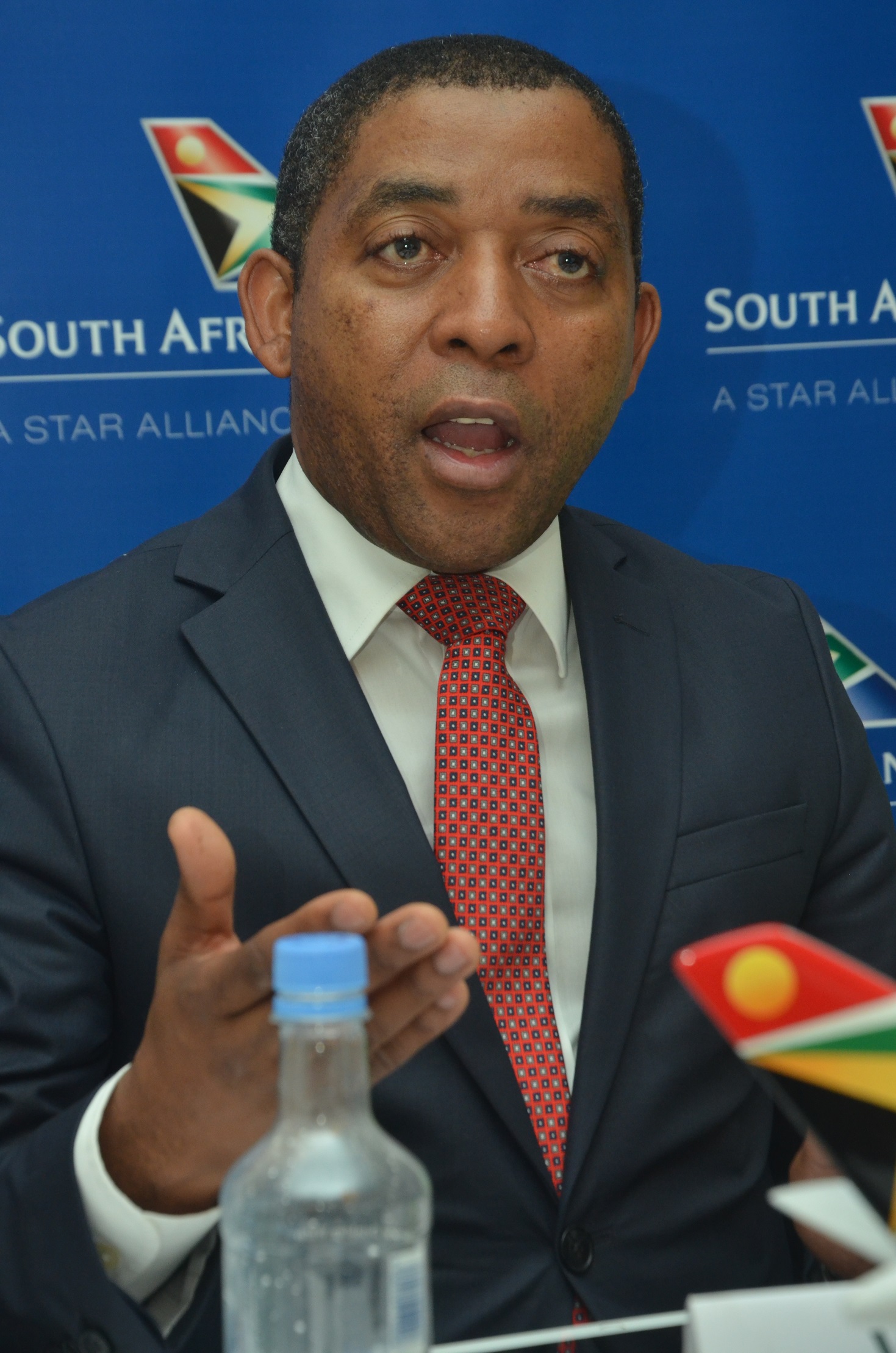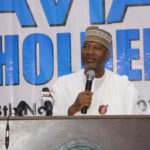
described Nigeria as very important market for aviation in Africa after operating in the country for 20 years. He said to make the airline profitable, his management must implement policies to rejuvenate the airline. He spoke to Aviation Correspondents recently during his visit to Lagos.
How many passengers have you airlifted in the last 20 years you have been operating in Nigeria?
There are things we need to take into context. When the Bi-lateral air service agreement was first signed, it was two frequencies per country. So, we were only allowed to fly two frequencies and that restricted the number of passengers that we could carry. Even when the Bi-lateral air service agreement was reviewed two years later, we were allowed to do four frequencies but it was also seat restricted.
So, each country was allowed to carry a maximum of 300 passengers per week in each direction, obviously, that also restricted the number of passengers that we could carry. The current Bi-lateral agreements have given us 10 frequencies each country which is not seat restricted. With this we have now been able to carry up to a maximum of over three million passengers since 1998 in Nigeria. Could we have carried more? Definitely, we would have carried more. It is not just about Lagos-Johannesburg, it is about traffic behind the gateways.
What passengers would we have carried from other countries within the West African sub-region? What passengers would we have carried beyond Lagos in the sub-regions of 15 countries? So, there are quite a number of other complexities that can happen behind the two gateways. In the same vein, if the complexities of doing business in Nigeria are compared with other continents; which is one of the reasons why the low cost carriers operate very well in Europe. This is because you hardly ever see these low cost carriers operating out of traditional gateways like London-Heathrow and Frankfort, amongst others; they always use secondary or third tier gateways.
In the 20 years of operation, what challenges peculiar to Nigeria did SAA experience?
We fly daily from Johannesburg to New York. We uplift fuel out of South Africa into New York and we also uplift fuel from New York back to Johannesburg. We compare the price that we pay for our fuel in South Africa and in the USA. You have to be clever on how you apply your procurement. If we are seeing that the load factor from Johannesburg to New York is slightly less, so we come in with more fuel because we know that we are paying for that fuel in our local currency. When we refuel in New York, we are going to uplift much less; then it means the economics of the flight to and fro are not much. That is what cleaver procurement does. USA uses few amounts to pay for fuel much less that we pay out of quite a number of oil producing countries in Africa.
So, the African Airline Association (AFRAA) should bring the region’s airlines together and say, you are oil producing countries, how can you continue to sell jet fuel at a much higher price than countries that don’t produce jet fuel? The Boeing B747 was a beautiful aircraft and I can tell you the number of Nigerians that came to me when we stopped operating the B747 complaining. I could see people who were so in love with the Boeing 747 aircraft. We were the first achieving test airline for the Boeing 747-200, the special performance aircraft.
We flew it out of Johannesburg to London as the first airline in the whole world, specifically designed for South Africa conditions but the economics come in because it is a four-engine aircraft. So, we say when we are uplifting so much fuel in such a high altitude at such a cost. How profitable is that operation going to be? So, we discontinued using the B747-400.
Considering the current state of SAA, what is your plan for the airline to return to profitability?
It is well known that SAA in recent years have gone through difficult times in terms of profitability and lack of profitability. There have been a lot of initiatives and strategies developed in SAA to turn it around. Any business that has to succeed has to be able to carry its own operations. There is nothing wrong with shareholder injection as it is normal in any business especially if you are trying to grow or facing difficult times. The case of SAA has been slightly different. We have come in as a new management and the big focus has been turning around SAA. If you look at the history of SAA, it hasn’t lacked strategy and the strategies are not bad. However, what has been missing is that if you write a strategy without implementing it, you will not achieve success.
The difference between the current board and the management team that we have put in place and will continue to beef up is the willingness to execute on the strategy. This is really rolling off your sleeves and getting things done. The biggest dimension of strategy is timing. Strategy is not static, it continues to evolve. It is not necessarily that there are too much new ideas but the difference is the willingness to implement. So, we are implementing the strategy. We have pulled back a lot in the domestic market. A lot of the routes were negative at the gross profit margin ladder.
Our own strategy has brought back margins at gross profit ladder as well as in the rest of the continent. The next thing is to take out the costs, the fixed costs in the organisation. On contracts which we feel we will have negotiated better, we have put in teams to look into that. We need to take out the costs so that we can get back to profitability. As we do so, we have to keep our eyes on the market. Customers must be served better. Instead of flying two frequencies a day, where we are making losses on both, we are consolidating on one where we can come out with better margins. We are also putting good services on-board so that customers must choose SAA flight ahead of the other competitors.
We are achieving being the most sought after airline. We will continue to improve. Therefore what it does is that it allows you to command a price premium in that market because of the differentiated service. We are balancing skills and profitability. Some South Africans may be a little bit impatient about what we do. What we are relying on are the evidences of what we do; showing them progress and where we are. With time, they will see that it is a different team that is executing on the strategy and that is our commitment. There is a chosen path by the government and we are doing everything in our hands to make it work. These are practical things that we are doing and some of them take time but some of them are easy to execute on the commercial side.

What are the particular efforts you have made to enhance visa facilitation and tourism in Nigeria?
When you talk about visa, when I am here I meet with the Consulate General and the ambassador. When we go back home, we talk to the minister looking at ways how we can improve the processing of visa in Nigeria. So, I must say that with the stimulus package that the president announced, in there is the promotion of tourism, which talks to the review of visa processes. The consulate general spoke earlier saying there are efforts to look at longer term visas because what is important is that if you are a frequent traveller to Nigeria and South Africa, it doesn’t make sense to be given single entry or one-time visa because you are going to apply many times.
So, once you have gone through the profiling and you go there often, why should you not be given a longer term visa? What you see in the changes that are coming through is that possibility. So, once you see more and more people qualified getting longer term visa, then the ability to process the new comers, then you spend lot more time on the right people. Then, we will get volumes coming through. When we have volumes coming through, then we can look at whether we are serving the market adequately because once we have more volumes of people coming to South Africa, it creates an opportunity to expand the services.
How is the Nigerian market to your operations compared to other markets where you operate?
The difference is the size here. There is only one Nigeria, if you are not in Nigeria, then you are not in the world cup in terms of business. However, doing business in Nigeria is not a tea party. It is a lot more complex, you need to understand it and have a lot more temperament to work with the environment. So, hopefully, with the team that we have on ground and our own understanding of the market, we should be able to make success out of the market but of course. Nigerians are looking for great service and they always ask for proper service. So the services must talk to their tastes and preferences.
That is why our priority was to put a newer aircraft here because of the market. The focus is on quality and really looking at great service. So, we are responding to the market appropriately and we will continue to do so. Our big focus is to make sure we are consistent in service, so that customers’ expectations are met almost 99percent of the time.
What is the actual state of SAA now?
We have said it is going to take us three years; from now to 2021 to make the company break even, which means it becomes profitable. When you own a company that is not profitable today, shareholder capital costs and debt financing becomes the instrument to support working capital. So, that is where we are. The government of South Africa injected another five billion rand to support SAA. Our commitment is to implement the breaking even of SAA in three years.

Twenty years gone for SAA in Nigeria, what is the next big step?
We understand that the Nigerian market is big. There should be possibilities to look at other opportunities in the market. It could be Nigeria outbound to other continents or other countries whether it is London or United States. So, we need to understand how we can participate in those opportunities. We are putting teams in place to study the market and understand the revolutions of the market. We understand that opportunities are a lot bigger than Johannesburg and Lagos routes that we currently have. That is the ambition. Ambitions like this take time because we need to do the frameworks; we need to get all approvals and a lot more before starting. We have ambitions but as we go through them, we begin to see where we are and the next thing we need to do.
The strategy of SAA is using the airline to drive tourism. Are you now changing that strategy with your emphasis on profitability?
We have not abandoned the issue of increasing tourism but we also understand that you have to balance these things. You can’t drive tourism without sacrifice. We don’t want to fly all over the world when we are not making money. We want to make sure we are on routes that we’ve got plans to make them profitable. Some routes will take time to turn profitable; some others will be a lot quicker. That is the focus. We are working at driving tourism, which is critical but also we see ourselves as a Pan-African airline. There is a lot of city pass we are doing with Johannesburg. We need to look at East, West Africa connectivity. The tourism strategy still exists but not at the detriment of other strategies. We have to look at what the market wants and we must do what the market wants not necessarily what we want. So, it is a balanced approach.
What is the situation with some of the subsidiaries of South African Airways?
Mango Airline is a very successful subsidiary of SAA. It is a low cost airline and very strong in the domestic market. It does a few regional routes but predominantly, low cost. What we have seen in the domestic market is that there is a huge appetite for low cost carrier services. Mango has grown significantly in that area, so we made that decision to ensure that they continue to lead in that market. We put more aircraft in the beginning of this year in Mango to ensure that they continue to continue to be a leader in the region.
So, that part of the business is working very well. We’ve also got the technology organisation that maintains aircraft. Where we have to fix a lot of things is within SAA overall cost structure; how we buy things, how we operate, really making sure we optimise business processes. Business process automation will save a lot more cost for us. Looking at how you buy parts. So, these are the modern ways of doing business in technology. We have to evolve to that tech organisation so that the cost to serve is lower.
THISDAY






